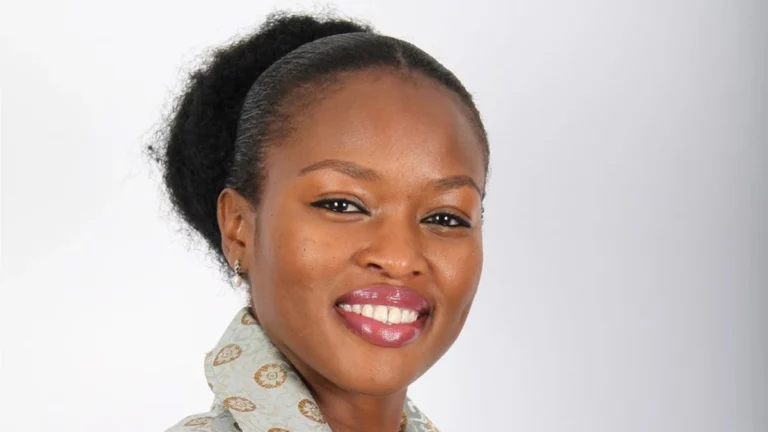Fikile Mbhokota has been serving as the CEO of Satrix since the start of 2022, leading a financial giant with R260 billion in assets under management.
Satrix is the largest index-tracking business in South Africa, and mixes a range of vanilla and smart beta strategies across ETFs, life pools, index-tracking businesses and more.
Instead of active management that sees investors select a group of investments, index-tracking is a passive strategy that follows an index like the S&P 500 and JSE Top 40.
The company has been led by Mbhokota since 2020, who joined as CEO after close to two decades in the investment industry. Her experience ranged from indexation and active investment management, with a focus on consulting, operations, research, fund administration, business origination and more.
Prior to starting her career, she attended Settlers Agricultural High School in Limpopo.
Her first job was working as a sales clerk at a clothing shop when she was at university, where she used her earnings to buy her first suit for graduation.
She then started her professional career as an Asset Consultant at Acsis Limited, now part of Old Mutual, where she was responsible for investment reporting and executive account management. Mbhokota’s career path has taken her on a storied journey across various investment and asset management firms.
From Acsis, she moved on to global investment firm Riscura, followed by RMB Asset Management—which would become Momentum Asset Management.
She joined Absa as a Senior Institutional Asset Consultant, again working in investment oversight and executive account management.
After years in the private sector, Mbhokota joined the Government Employees Pension Fund (GEPF) as an Investment Manager. The GEPF is Africa’s largest pension fund with R2 trillion in assets under management, and Mbhokota was responsible for due diligence, manager selection, portfolio optimisation, contract negotiation, and monitoring at the firm.
She also monitored direct investments in social infrastructure, priority infrastructure, economic infrastructure sectors and real estate.
Rising in the ranks, she was promoted to Acting Executive: Head of Investments and Actuarial, where she was responsible for developing and implementing the fund’s strategy.
She also held executive leadership of the ESG investment and actuarial function, and was also responsible for unlisted investments, private placements and a fund of funds portfolio in Africa. In June 2022, she then took over at Satrix, replacing Helena Conradie as permanent CEO, who left a year previously.
“We are beyond thrilled to welcome a leader of Fikile’s calibre to Satrix,” said Reece Briesie, the interim CEO after Conradie left, at the time of the appointment.
“Her exceptional leadership pedigree will bring deep value to all tiers of the business.”
Under her leadership, the company has continued to innovate in the ETF space, which included the launch of the Satrix Diversity & Inclusivity ETF that looks at companies with strong diversity practices.
The company also worked to make investing more accessible to a broader range of South Africans via platforms like SatrixNOW, a digital investment platform.
While the Satrix Investment Plan requires minimum investments of R300 per month, or lump sum investments of R1000, SatrixNOW has no minimums.
Despite challenging market conditions, Satrix has seen significant growth in assets under management, with a 50% increase since the beginning of 2020
The company has seen a massive rise in its assets under management under Mbhokota’s leadership.
The company has seen its assets under management rise from R161 billion in June 2023 to R260 billion in June 2025.
This comes amidst an increasing interest in passive equity investment, with many active managers struggling to outperform the market.
Outside of investments, Mbhokota is an avid marathon runner and has two children with her partner.
She said that when it comes to her family and her health and fitness, she takes the same approach as her investement strategy—not expecting quick wins, but putting in the time to yield the results she wants.
In the context of being a mother, this feeds into the legacy she wants to leave with her children.Speaking of her upbringing, she said that she was never exposed to investing and that her parents only looked into investing later in life.
“I often share a story about my dad – he wanted his money to work for him, but he only knew to leave it in a 30-day account,” she said.
“This has since changed, but imagine if he had invested it for the long term back then; the power of compound returns could have changed so much for us as his family.”
“That’s the legacy I want to leave for my family: empowering them, and others, to invest wisely and at a low cost. It must start at home.”






